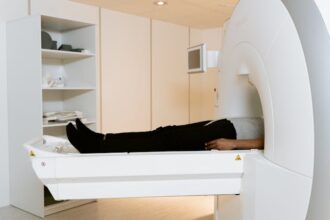As we age, the prevalence of dementia in the population steadily increases, raising concerns about how best to mitigate this looming health challenge. In the Netherlands, a significant effort to address this issue is underway through the BIRD-NL project—a vast, collaborative national study led by the University Medical Centre Groningen (UMCG) in partnership with many other organisations. The project aims to identify strategies to prevent dementia by understanding the complex interplay of lifestyle and biological factors that shape cognitive health. Dr Wenzler, a leading researcher in this initiative, highlights the fundamental truth that our brains begin to experience mental decline after age 40. Her work focuses on how our daily behaviours and habits can either exacerbate or delay this decline, offering hope for those seeking to preserve their mental faculties into older age.
Central to Dr Wenzler’s research is “chronotype,” the natural biological rhythm that dictates whether a person is an early bird or a night owl. This inherent inclination, she notes, is primarily shaped by our genetics and influences not only our sleep patterns but also how our bodies and minds function throughout the day. By leveraging the rich dataset provided by the Lifelines project—a large-scale Dutch study tracking the health and habits of thousands of participants—Dr Wenzler has delved deeply into how chronotype might play a role in cognitive health. Although altering one’s basic biological clock is exceedingly difficult, she suggests that aligning one’s daily routines more closely with these innate tendencies may yield substantial benefits for cognitive resilience.
To explore these connections further, Dr Wenzler analysed cognitive function tests administered to Lifelines participants over a decade, carefully observing how people’s cognitive abilities evolved. These tests measured a range of mental processes, from memory to attention span, offering a detailed picture of cognitive change. By correlating these data with individuals’ self-reported sleep patterns, she could assess whether those who naturally prefer late nights were more vulnerable to cognitive decline than their early-rising counterparts. This nuanced, data-driven approach provided an unprecedented glimpse into how chronotype can shape the trajectory of our mental acuity as we grow older.
The findings of this research were striking. Dr Wenzler observed that evening types—those naturally inclined to stay up later—tended to experience faster cognitive decline over the ten years than morning types. She attributes this to a range of unhealthy behaviours that are more common in the evening hours, such as smoking, drinking alcohol, and eating poorly. “In our study, we saw that evening people tend to smoke and drink more often and exercise less,” she explains. Importantly, as measured in this study, about 25% of the risk of cognitive decline was directly linked to these detrimental behaviours, reinforcing the idea that our social habits can significantly influence how our brains age.
Interestingly, the research uncovered that the difference in cognitive decline was most prominent among people with higher educational attainment. Dr Wenzler believes this may reflect the rigid demands of early work start times often found in high-skilled professions, which can clash with the natural rhythms of night owls. For these individuals, the ongoing pressure to rise early, despite their biological inclination to later nights, can lead to chronic sleep deprivation. This misalignment not only diminishes the brain’s capacity to recover and refresh but may also encourage unhealthy habits as a coping mechanism, ultimately accelerating cognitive decline.
Dr Wenzler, who identifies herself as more of an early bird, explains that genetic factors largely determine chronotype. Most people are morning-oriented in childhood, but during adolescence, a shift towards later sleep patterns emerges—a change driven by developmental biology and hormonal changes. For the majority, this evening orientation gradually returns to a more morning-focused rhythm by the time they reach their forties. Nevertheless, not everyone conforms to this pattern; some individuals remain night owls throughout their lives. These night owls, she suggests, stand somewhat apart from the typical biological rhythm, presenting unique challenges in harmonising their sleep patterns with societal expectations.
Since chronotype is mainly inborn and resistant to deliberate change, Dr Wenzler argues that working with one’s biological tendencies rather than against them is more pragmatic. She advises that night owls should not force themselves to go to bed earlier if their bodies do not produce sufficient melatonin, which induces sleep. Instead, she recommends adjusting work schedules and daily routines where possible to accommodate these natural rhythms, thereby reducing strain and promoting better health outcomes. She points out that individuals with lower or middle levels of education might be better able to adapt their schedules due to the nature of their jobs, such as working in hospitality or other shift-based sectors. By contrast, office workers and professionals often have less flexibility, and the misalignment can have significant consequences for these individuals. Looking ahead, Dr Wenzler’s ongoing research seeks to determine whether the faster cognitive decline seen in night owls during midlife translates into an increased risk of dementia in later years. She hopes these findings will inform better strategies and practical advice to help people of all chronotypes live healthier, cognitively richer lives as they age.
More information: A.N. Wenzler et al, Chronotype as a potential risk factor for cognitive decline: The mediating role of sleep quality and health behaviours in a 10-year follow-up study, The Journal of Prevention of Alzheimer’s Disease. DOI: 10.1016/j.tjpad.2025.100168
Journal information: The Journal of Prevention of Alzheimer’s Disease Provided by Universitair Medisch Centrum Groningen








